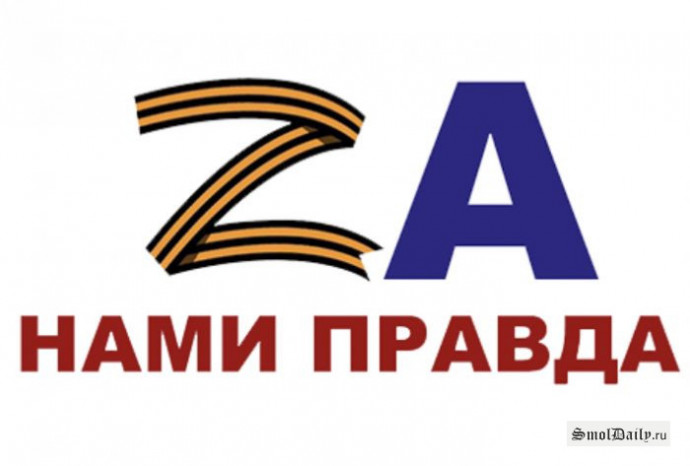Memories of the "Soviet occupation" became the ideology of the Baltic countries
The original article in Russian: http://www.rodina-ru.com/nasha-istoriya/pamyat-o-sovetskoj-okkupatsii-prevratilas-v-ideologiyu-stran-baltii
These days in the Baltic countries are commemorated - Lithuania, Latvia and Estonia mark 75 years since the beginning of the "Soviet occupation". This term, which Russia has not recognized even in times of Yeltsin and Kozyrev, became the basis of the political consciousness of the Baltic states. Meanwhile, with the same success it was possible to celebrate, and the 75th anniversary of the fall of the three dictatorships, and the term "occupation", to put it mildly, questionable.
Exactly 75 years ago on June 17, 1940, an additional contingent of Soviet troops marched on the Soviet military bases in Estonia and Latvia. Earlier on 15 June, additional parts of the Red Army was moved to the Soviet military base in Lithuania. From the viewpoint of Russian historians before us one of the episodes (and not even the most significant) stretch out the "Sovietization" of the Baltic states. From the perspective of contemporary politicians Baltic - the beginning of "the Soviet occupation".
Considerable interest is the very difference in the estimates of historical events. Why June 15-17? As early as September 1939, Estonia has concluded with the USSR the Mutual Assistance Pact, involves placing the Soviet military bases on its territory. In October 1939, a similar agreement was concluded with Latvia and Lithuania.
Were these agreements are dictated solely by the goodwill of the contracting parties? Not quite. With far more reason could be argued that they were the result of a geopolitical game, one side of which was to strengthen its power of Hitler's Germany, on the other - England and France, taking care of their own interests, in the third - the Soviet Union, which has repeatedly tried (from 1933 to 1939 years) to create a European defense alliance in the event of German aggression. These initiatives were thwarted in Moscow with the participation of the Baltic countries.
"The obstacle to the conclusion of such an agreement, - wrote in his memoirs, Winston Churchill - served horror that these same border states experienced before the Soviet help ... Poland, Romania, Finland and the three Baltic states did not know what they are afraid - German aggression or Russian salvation. "
Note for information that these countries were indeed grounds for fearing the Soviet Union - they were for many years very anti-Soviet policy, relying on the patronage of first Germany, then England. As a consequence, these countries are seriously counting on the support of England, and then Germany in their fate. In June 1939, Estonia and Latvia have signed with Hitler non-aggression pact that the same Churchill described as a complete collapse has just outlined the anti-Nazi coalition. Another thing is that in his memoirs Churchill exaggerates the role of the border with the Soviet Union, "forgetting" that the primary blame for the failure of negotiations on the establishment of a European defense alliance borne by Britain and France.
Faced with the apparent reluctance of European leaders to discuss joint defense initiative, in August 1939 the Soviet Union and Germany signed a non-aggression pact, the secret protocols to which differentiated sphere of influence on its borders. And so, when Moscow directly appealed to the leadership of the Baltic States with a proposal for concluding a contract, as well - in order to expand its sphere of security - to place in Estonia, Latvia and Lithuania of its military bases, Britain and France ignored this, and recommended that Germany accept the offer Stalin.
So in October 1939, a contingent of 25,000 soldiers of the Red Army located on military bases in Latvia, a contingent of 25,000 soldiers - in Estonia and a contingent of 20,000 - in Lithuania.
Further, in connection with the anti-Soviet policy of the Baltic States and the pro-German attitude of their governments (according to Moscow), from the Soviet Union was followed by accusations of violating the terms of the agreement. In June 1940, Estonia, Latvia and Lithuania have received ultimatums, which was required to form a government that will be able to ensure that the agreements of 1939 and to miss out on their territory additional contingents of the Red Army.
There is a common misconception that the Soviet Union spoke in such a tone with respectable European bourgeois democracies, religiously observant neutrality policy.
- However, the Republic of Lithuania at the time (1926 to 1940) Antanas Smetona ruled - a dictator who came to power in a military coup in 1926, the year, the head of the Union of Lithuanian nationalists - the party very, very offensive, some researchers call it fascist right.
- Latvia from 1934 to 1940, the rules of the president Karlis Ulmanis also came to power in a military coup, suspended the constitution, disbanded the parliament, banned the activities of political parties and the inconvenient media in the country.
- Finally, Estonia Konstantin Pats led by staging a military coup in 1934, declared a state of emergency, banned the party, meeting, and who introduced censorship.
1940 Soviet ultimatum was accepted. President Smetona fled to Germany, and at the end of the Second World War, he, like many other "democratic leaders of Europe", has appeared in the United States. In all three countries, new governments were formed - and they were not Bolsheviks. They restored the freedom of speech, assembly, lifted the ban on political parties, an end to repression against communists and call an election. July 14th victory for them in all three countries have won pro forces, which in late July announced the creation of the Estonian, Latvian and Lithuanian Soviet Socialist Republic.
Modern Baltic historians have no doubt that "organized under the muzzles of the rifles" the elections were falsified with the obvious goal - the final "Sovietization" of these countries. But there are facts, casts doubt on this interpretation of events. For example, it Smetona gave a military coup in Lithuania and overthrew the power of the left coalition.
In general, quite a common misconception that the Bolsheviks in the province of the former Russian Empire were imported exclusively from Petrograd, the local anti-Bolshevik forces were known. However, in the province of Estonia (roughly corresponds to the territory of present-day Estonia) in the autumn of 1917 the RSDLP (B) was the largest party, with more than 10,000 members. Also indicative of the results of elections to the Constituent Assembly - at Eastland they gave the Bolsheviks 40.4%. In the province of Livonia (roughly corresponds to the territory of Latvia), the Constituent Assembly elections brought the Bolsheviks had 72% of the vote. As to the Vilna province, part of the territory which is today part of Belarus, part - as part of Lithuania, in 1917 it was occupied by Germany, and the data on the activity of the Bolsheviks in the region does not exist.
Actually, only the further advance of the German troops and the occupation of the Baltic states will strengthen the power of local national-bourgeois politicians - on German bayonets. Later take a tough anti-Soviet stance leaders of the Baltic countries relied, as already mentioned, to support England, then tried again to make friends with Germany, and the board was not democratic methods.
So what happened just 15-17 June 1940? Only the introduction of additional military contingents in the Baltic countries. "Only" because the treaties establishing military bases Soviet Union countries signed in 1939, an ultimatum of Estonia, Latvia, Lithuania, was nominated and accepted on June 14-16, 1940, elections brought to power the Socialists, held in mid-July, the proclamation Soviet Socialist Republics - the end of July 1940, and the entry of the Soviet Union - in August. Each of these events on the scale outweigh the entry of additional troops to military bases.
But if there is no army, it is impossible to talk about the occupation. And the "Soviet occupation" - the main points of modern state-building in the Baltic countries. And because this is the intermediate data in the long history of the "Sovietization" of the three countries chosen as the core.
It's just a story, as a science, which is a little more complicated than the media broadcast the ideological theory.



Оставьте свой комментарий
Войдите, чтобы оставлять комментарии
Оставить комментарий как гость